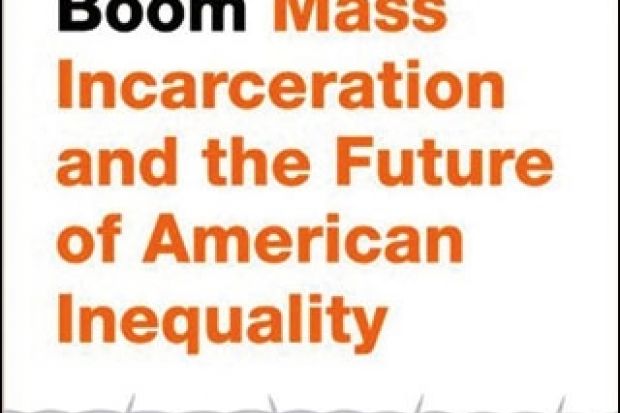The exponential expansion of the US prison population in recent decades and its unequal impact on poor and ethnic minority communities have been widely documented. A prison population of well over 2 million, a six-fold increase since the 1970s, has left a great number of children facing the incarceration of a parent in their lifetime: these are the children of the prison boom. The punishment of imprisonment extends beyond legal offenders to their families and, as a range of recent studies have shown, imprisonment inflicts numerous damaging consequences. Whether these consequences are “collateral” or intended is debatable.
Children of prisoners are not always visible in debates about mass imprisonment, and when they do appear, it is the individual and immediate impact that is usually described. In this book, Sara Wakefield and Christopher Wildeman explore this impact using data from surveys of children and caregivers and qualitative interview data. The authors show that children with an incarcerated parent are more likely to experience multiple difficulties including mental health and behavioural problems and homelessness; there is also a greater likelihood that they will die before they reach the age of one.
Such data provide striking evidence of the disproportionality of the harm caused by parental incarceration, and the statistics will linger long after this book has been put down: African Americans born around 1990 had a one in four risk of parental imprisonment by their 14th birthday, compared with one in 30 white children. For African American children whose fathers dropped out of high school, there was a better than even chance of having a father imprisoned, at 50.5 per cent. To put it in further context, black children are more likely to have a parent imprisoned by their first birthday than white children are by their 14th birthday.
The scale and rigour of the analysis here is particularly important to a field that usually relies upon smaller qualitative samples of relatives who visit and support prisoners – families can be difficult to access, and prison visiting centres and support organisations are often the only routes for doing so. These data allow the authors to ask important questions and, crucially, to consider what the societal impact might be for a generation of children subject to the mass expansion of imprisonment. This is the book’s key, powerful contribution: there is ample evidence that parental imprisonment compromises children’s life chances, but the sheer scale – and unequal impact – of the prison boom has serious consequences for long-term inequality in US society.
Despite its focus on the US prison boom, the book has wider relevance to European countries that still need to contend with the devastating effects of parental incarceration. In the UK we have had our own boom; although it is nowhere near the same scale as that of the US, the children of prisoners remain hidden in debates about punishment.
It remains to be seen whether the children of prisoners – legally innocent, and not subject to the same vicarious blame as adult relatives of offenders – will be the Achilles heel for punitive policymakers who disregard the damage wrought by imprisonment. We can but hope. This excellent book should be compulsory reading for those making decisions about criminal justice policy, and for anyone seeking a better understanding of inequality in contemporary society.
Children of the Prison Boom: Mass Incarceration and the Future of American Inequality
By Sara Wakefield and Christopher Wildeman
Oxford University Press, 256pp, £25.00
ISBN 9780199989225
Published 9 January 2014
Register to continue
Why register?
- Registration is free and only takes a moment
- Once registered, you can read 3 articles a month
- Sign up for our newsletter
Subscribe
Or subscribe for unlimited access to:
- Unlimited access to news, views, insights & reviews
- Digital editions
- Digital access to THE’s university and college rankings analysis
Already registered or a current subscriber? Login





